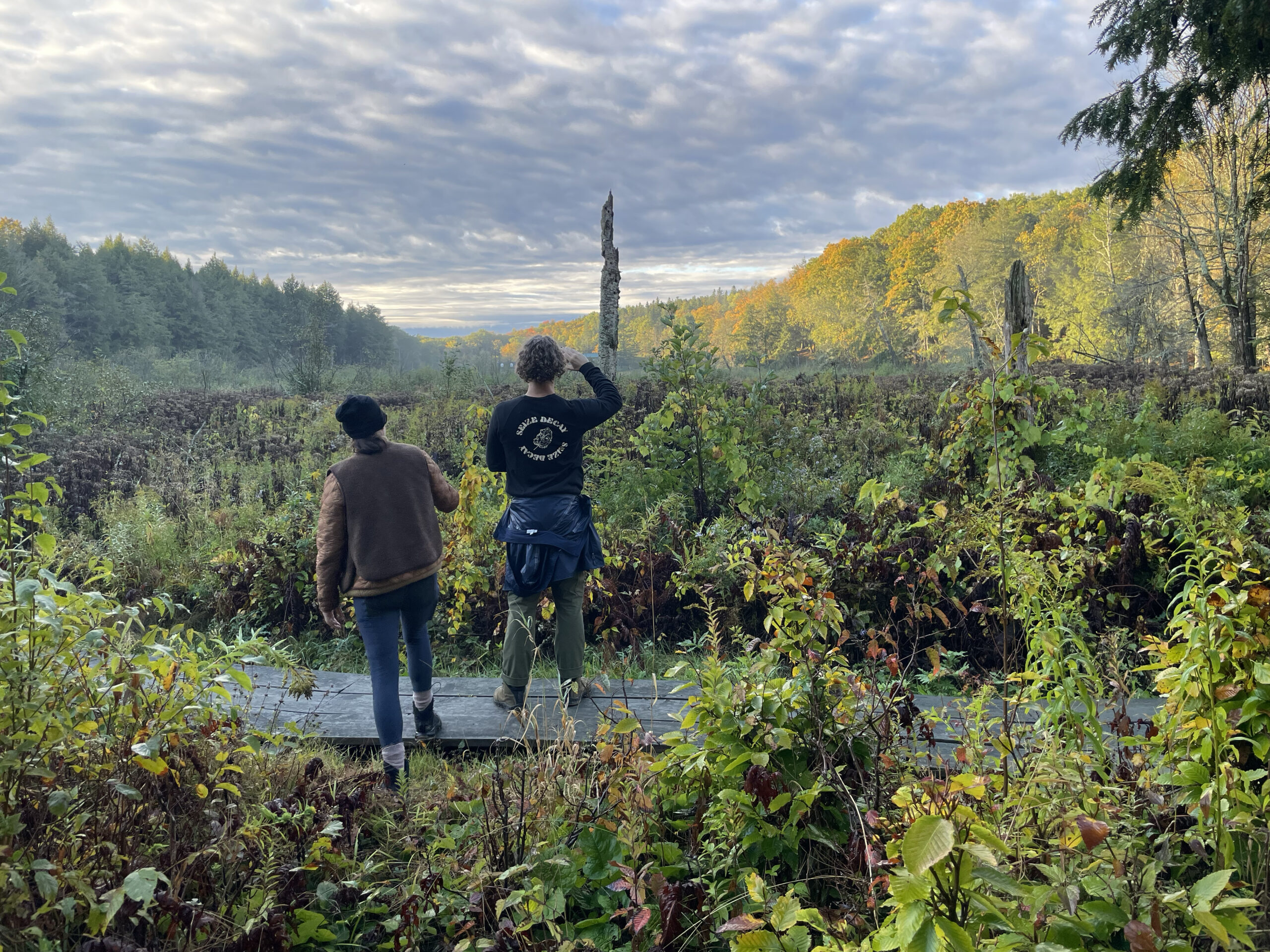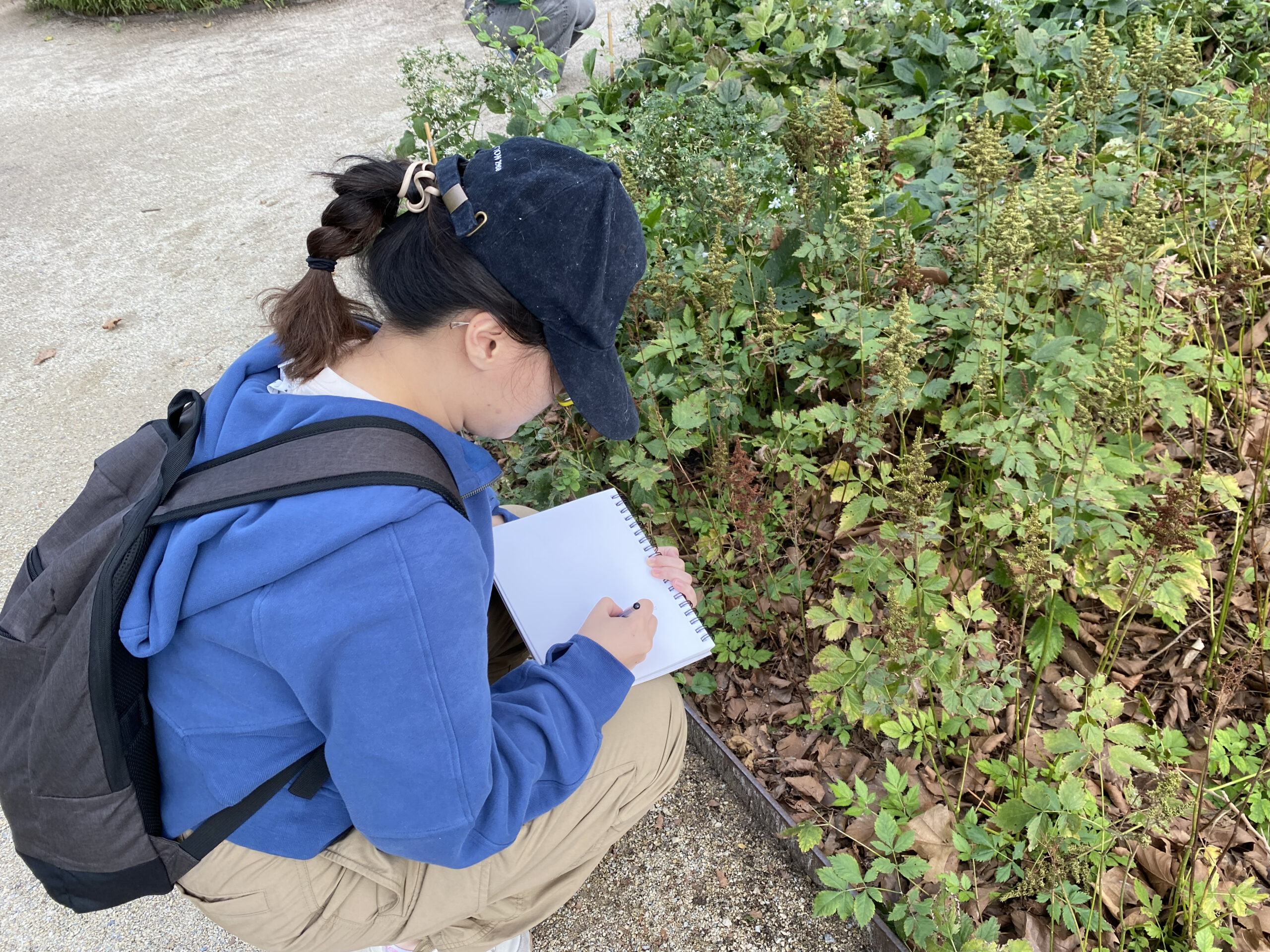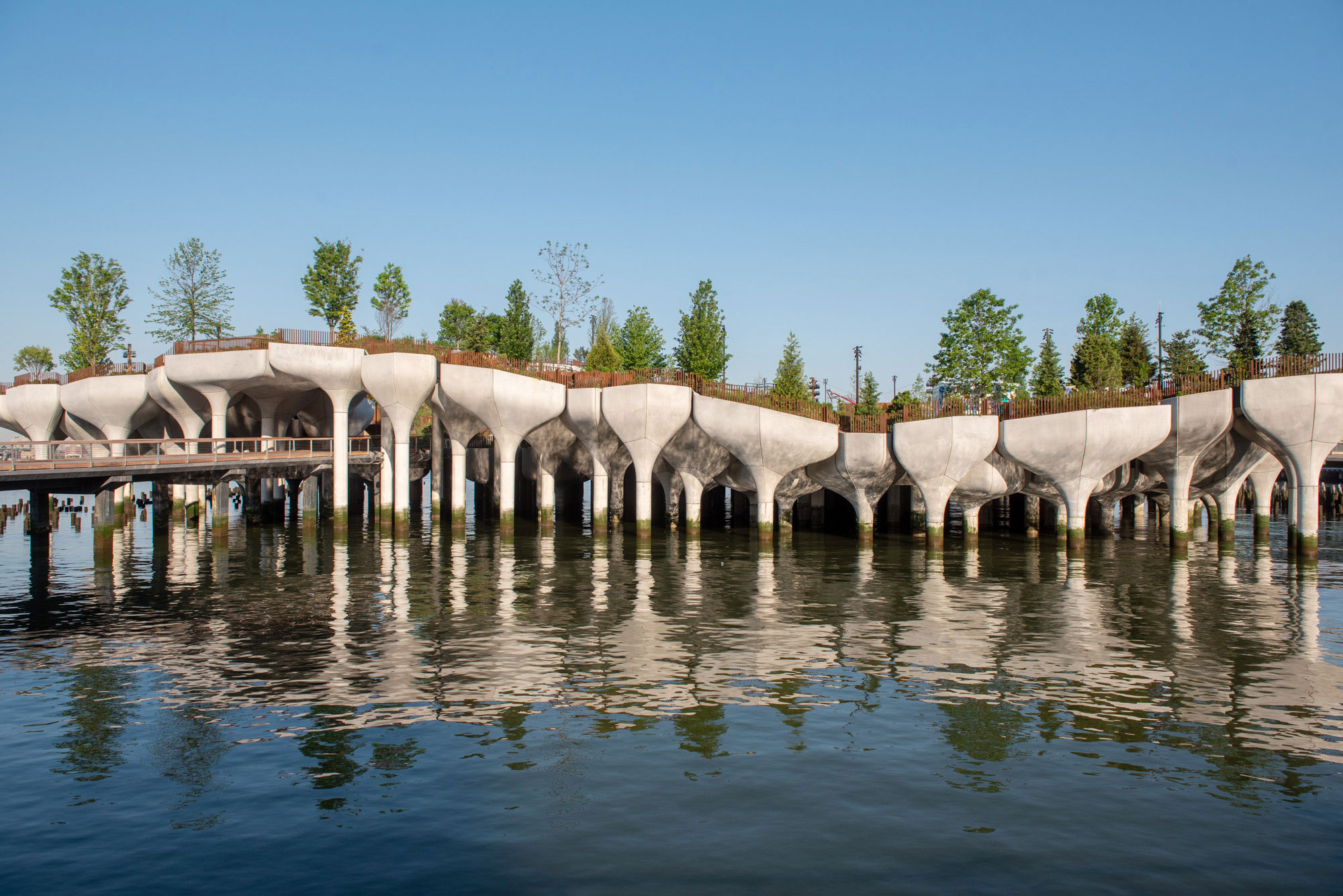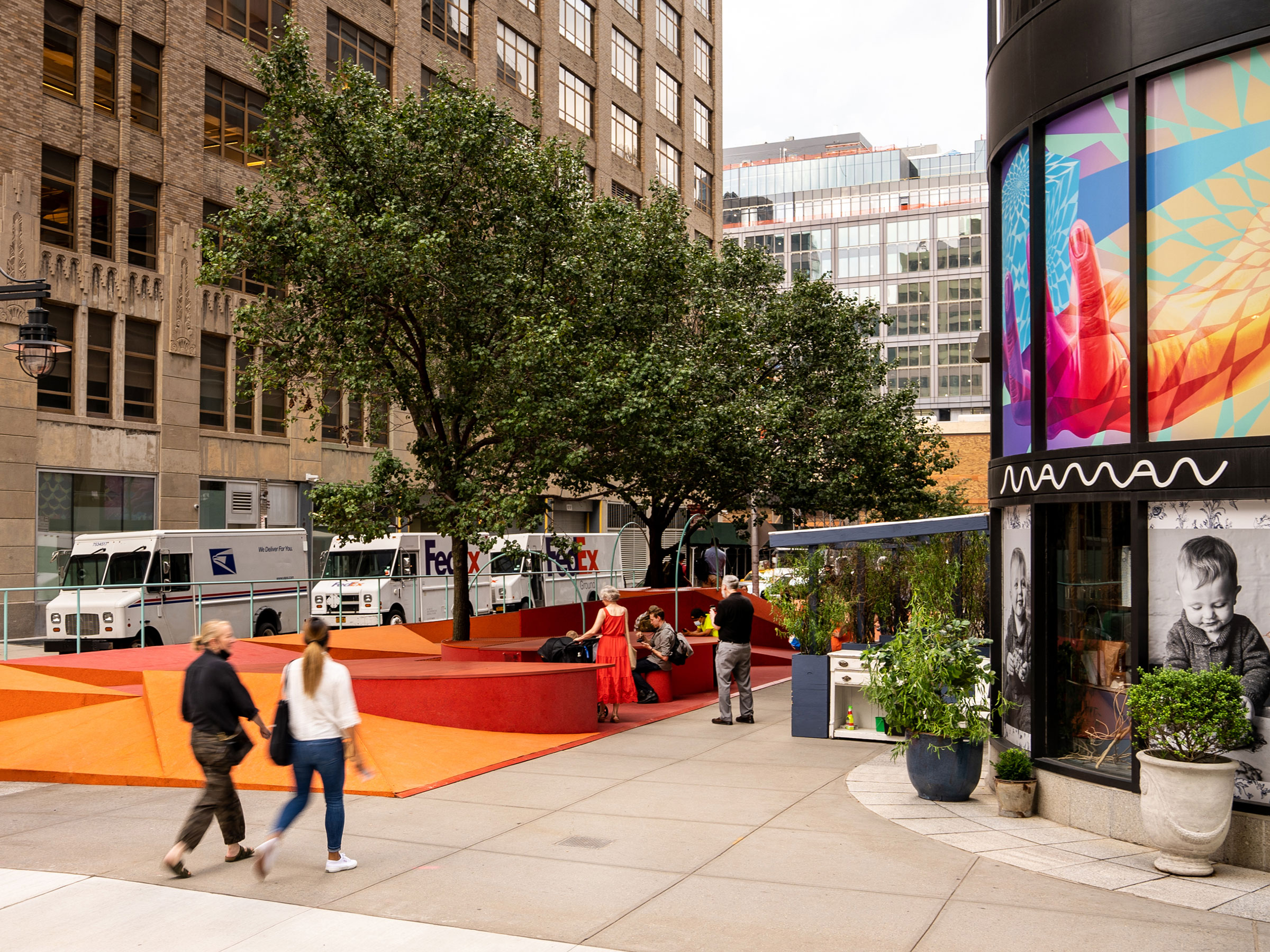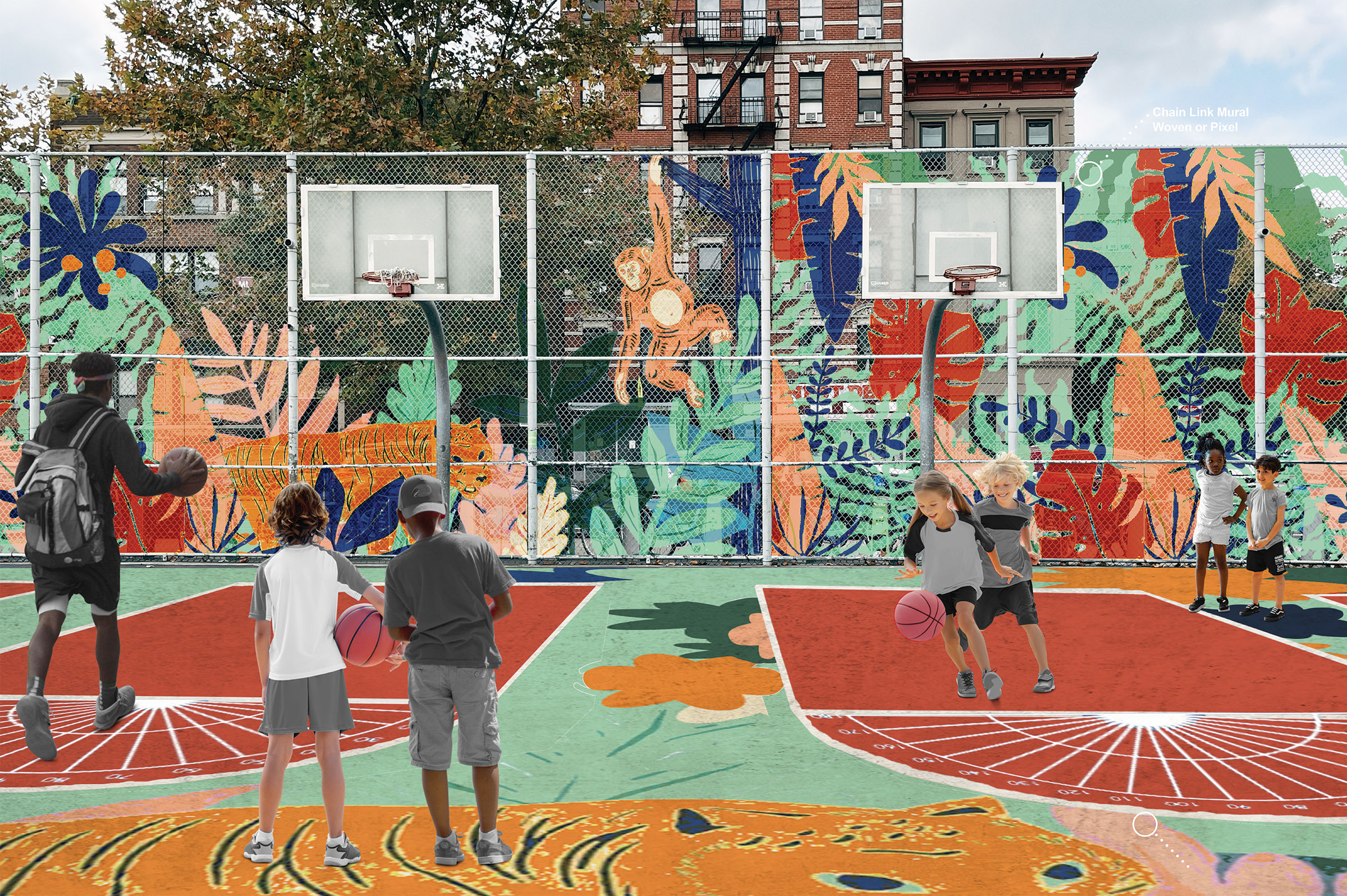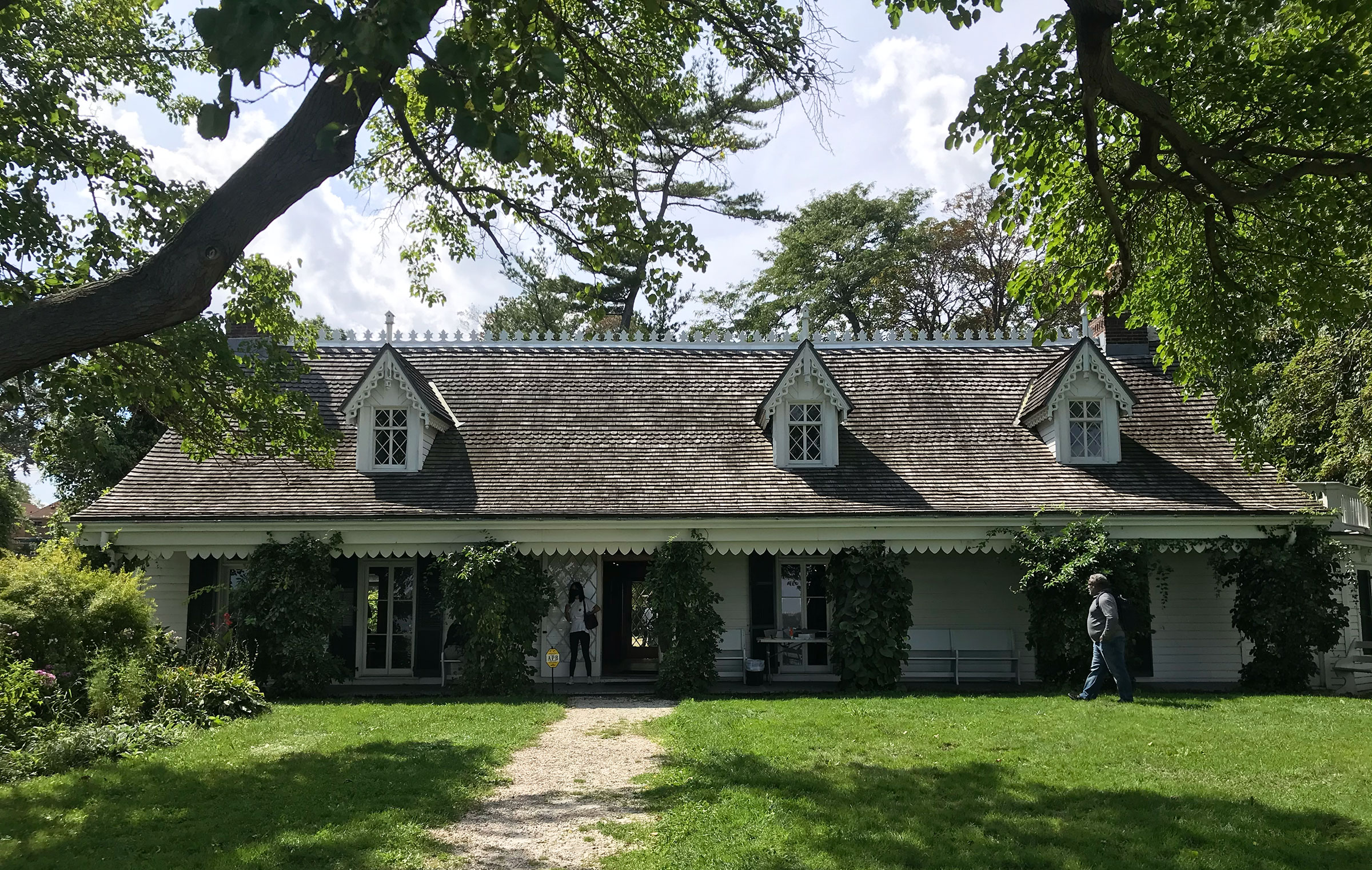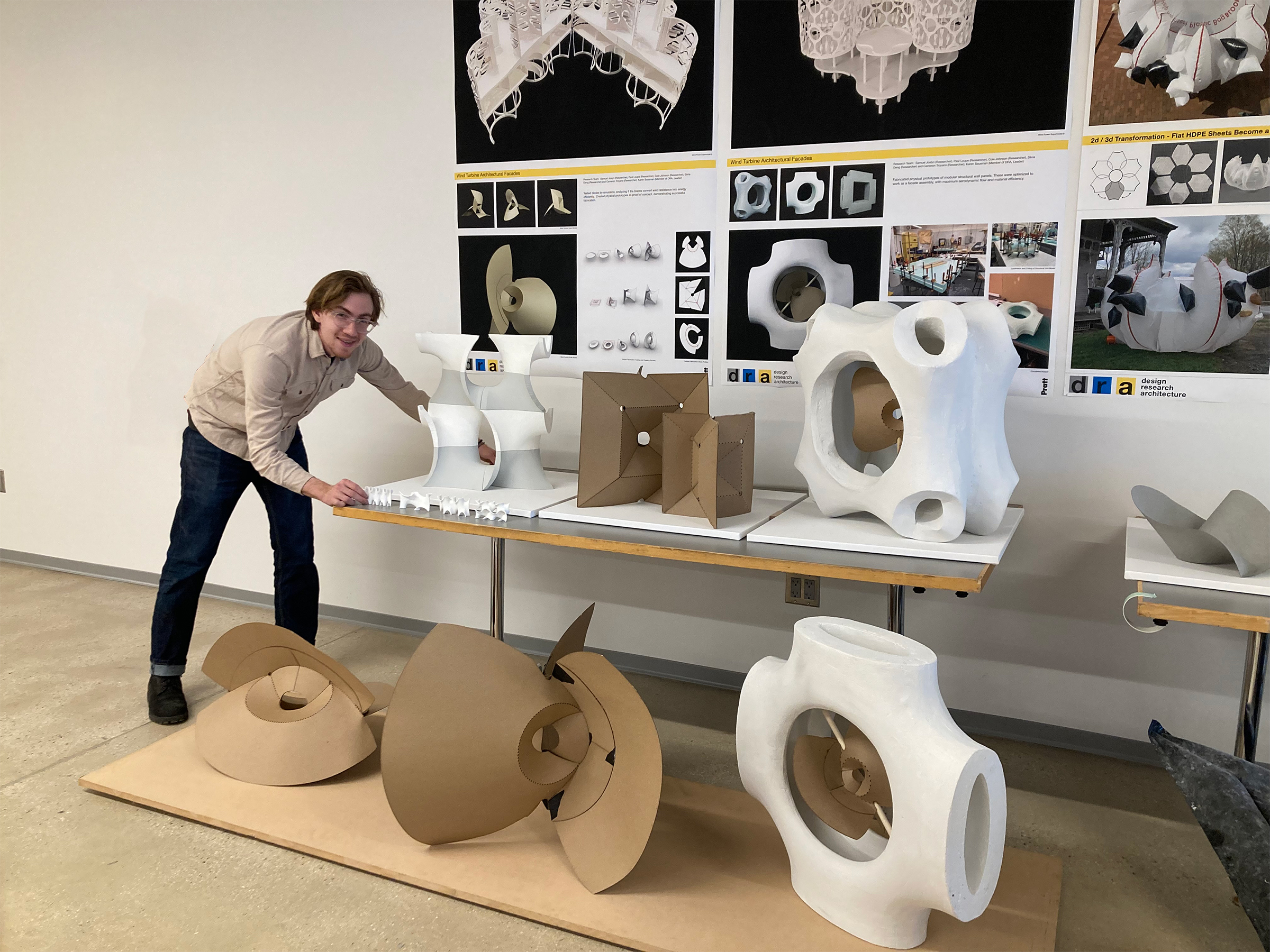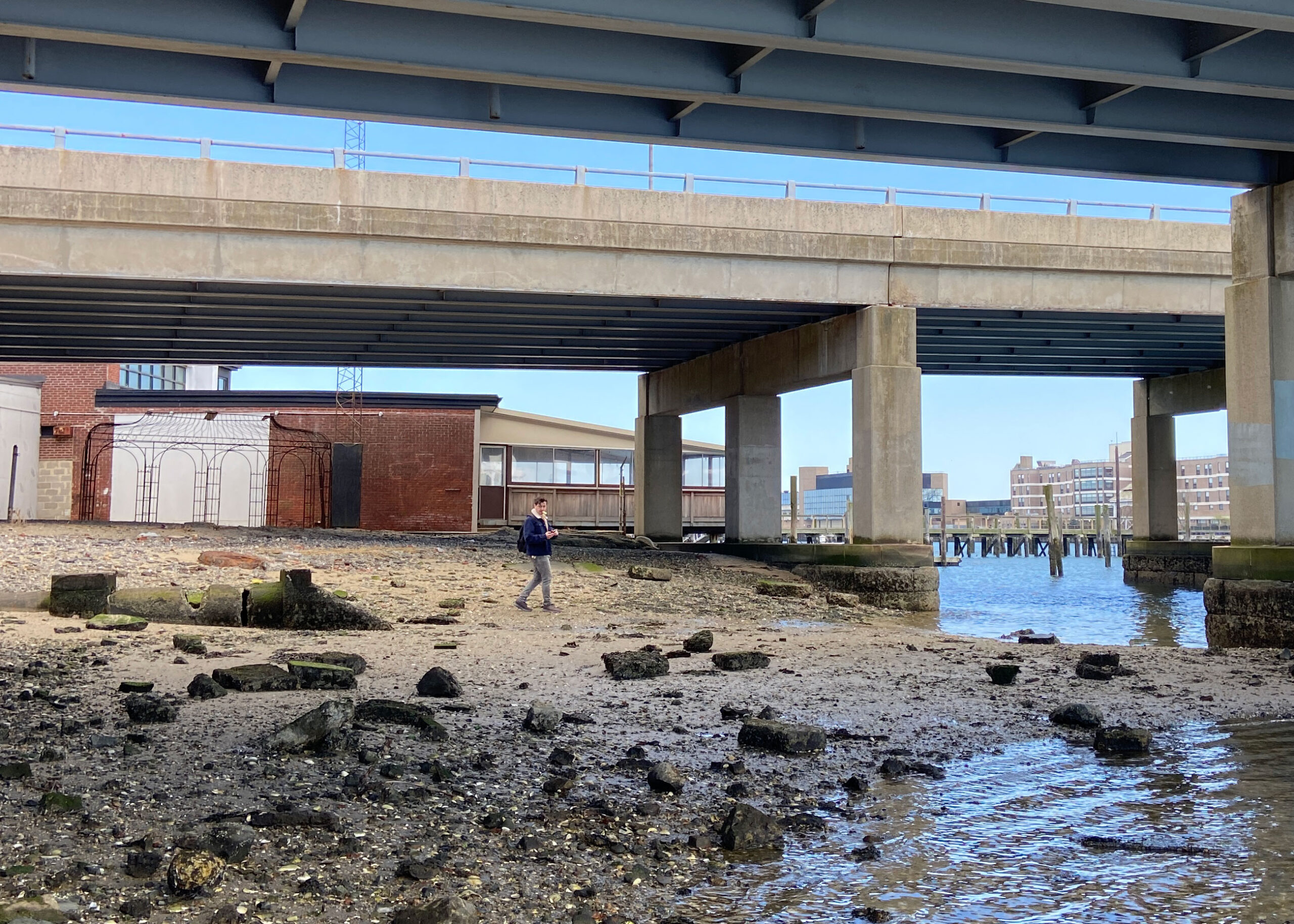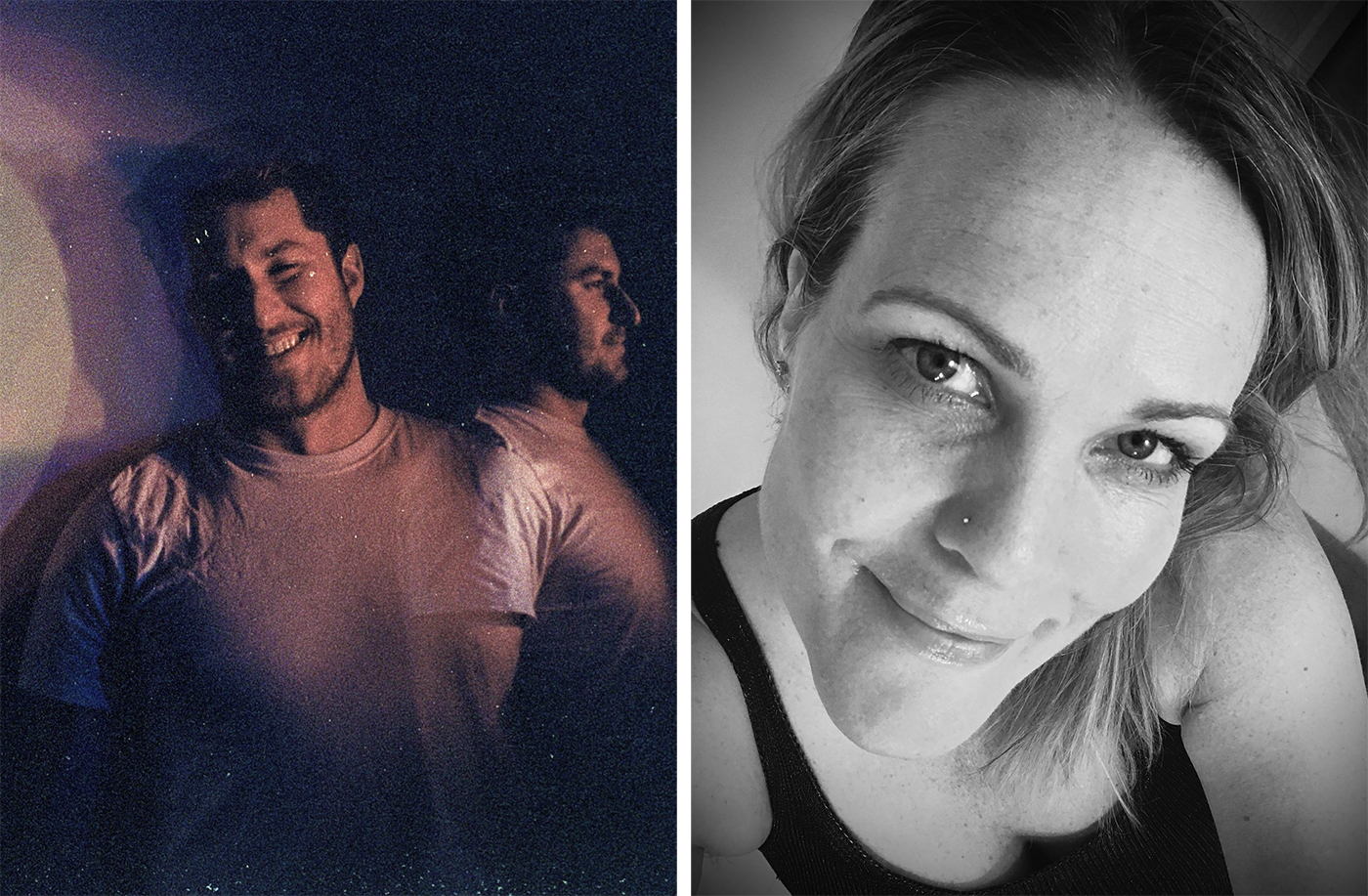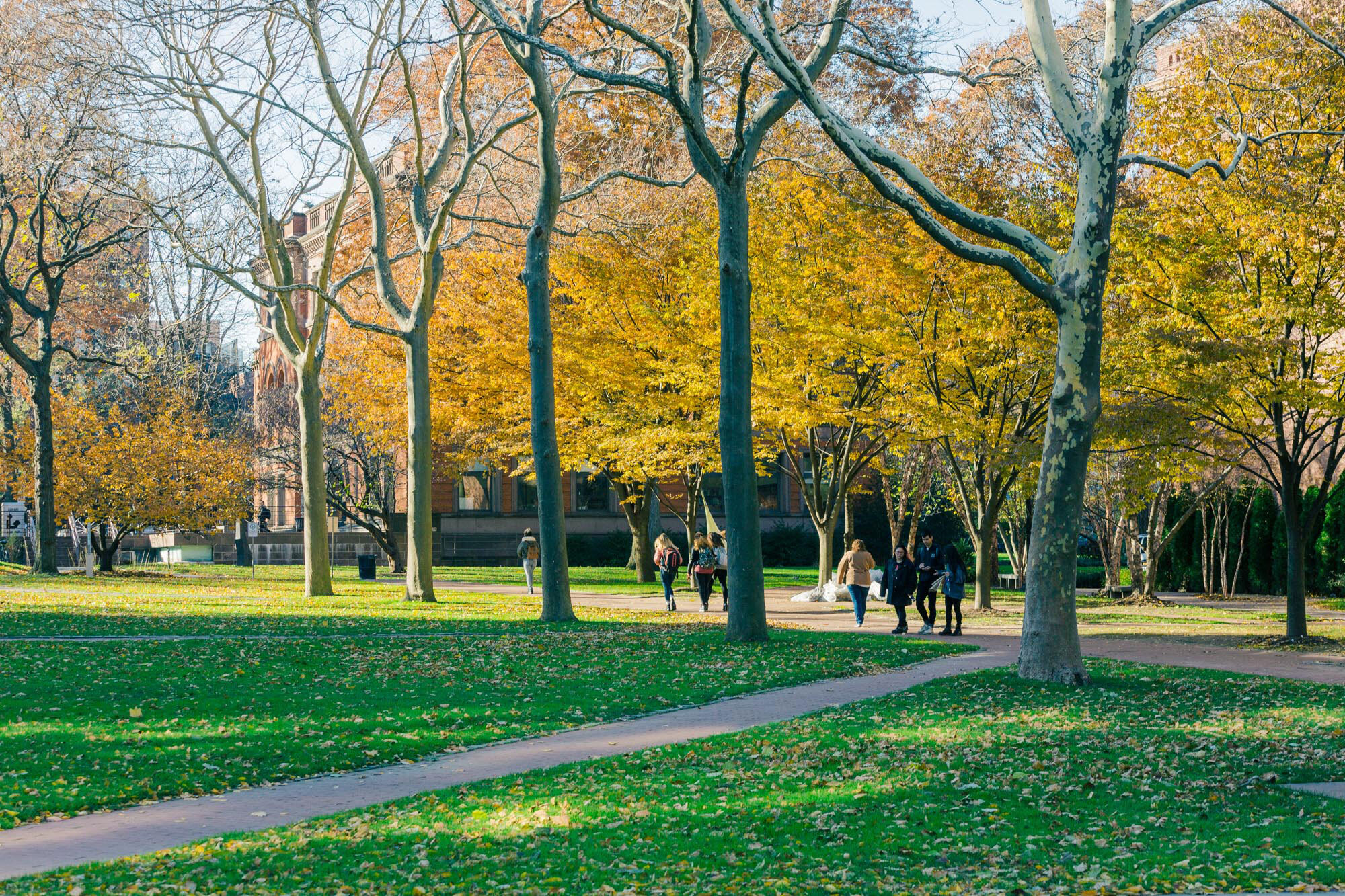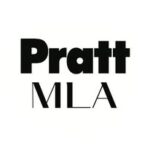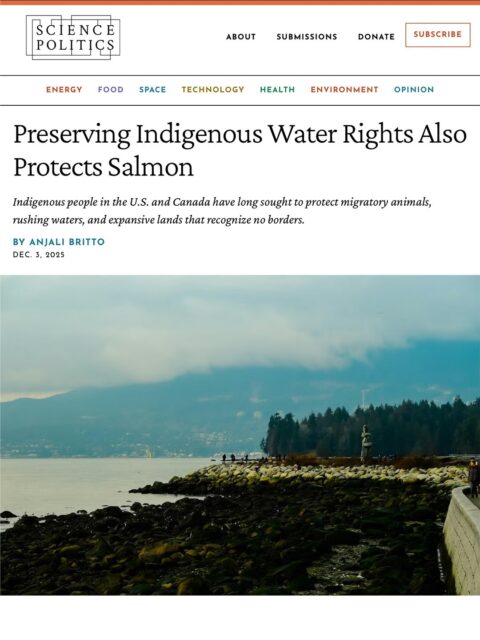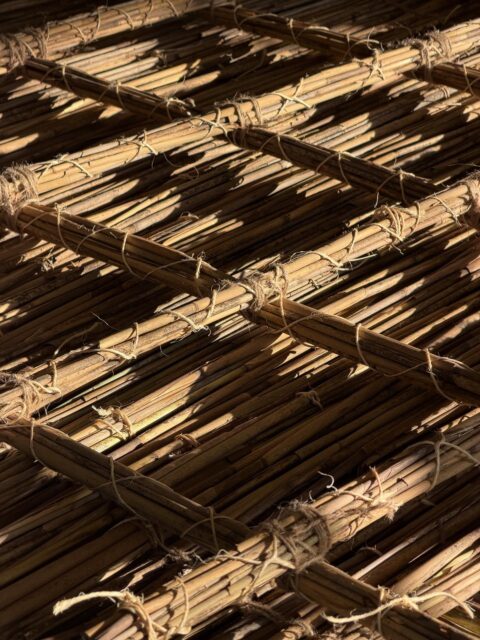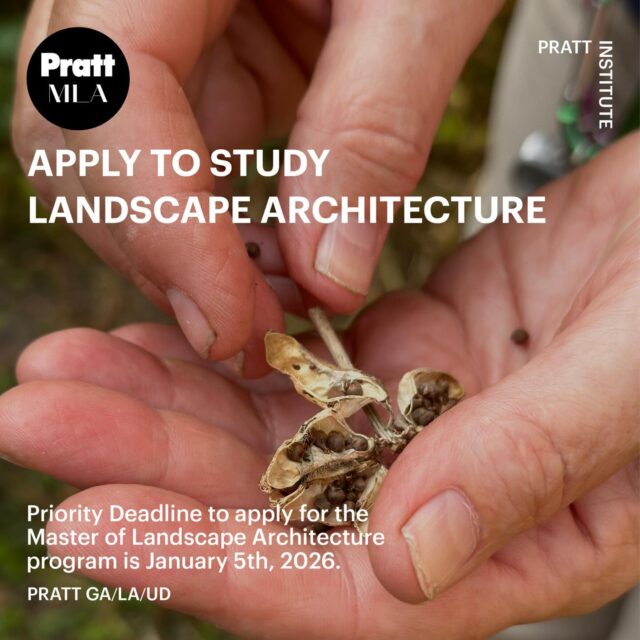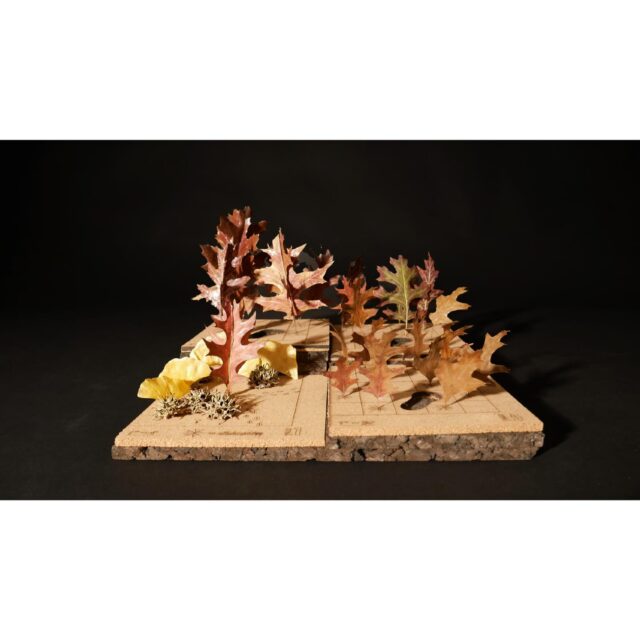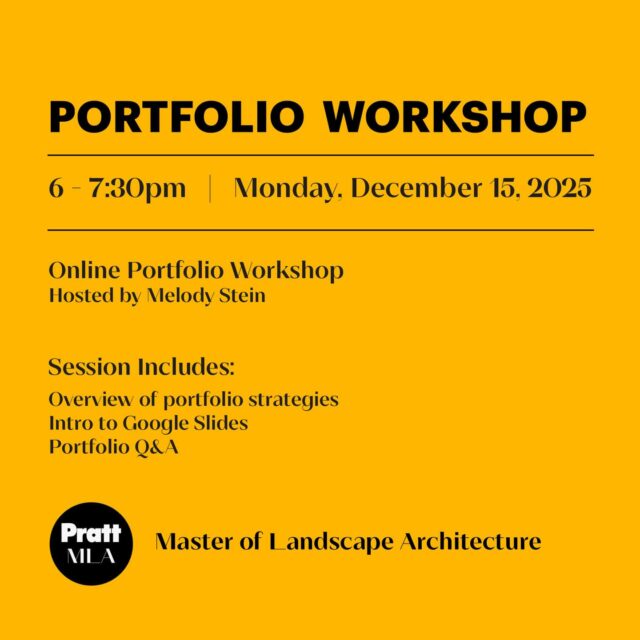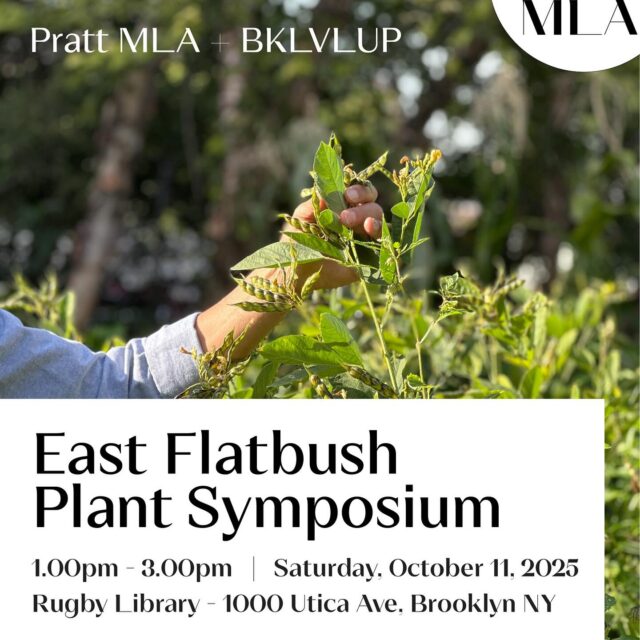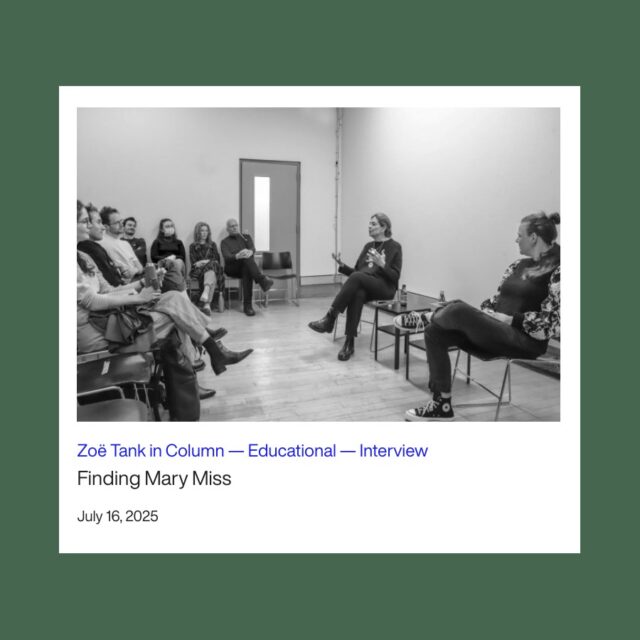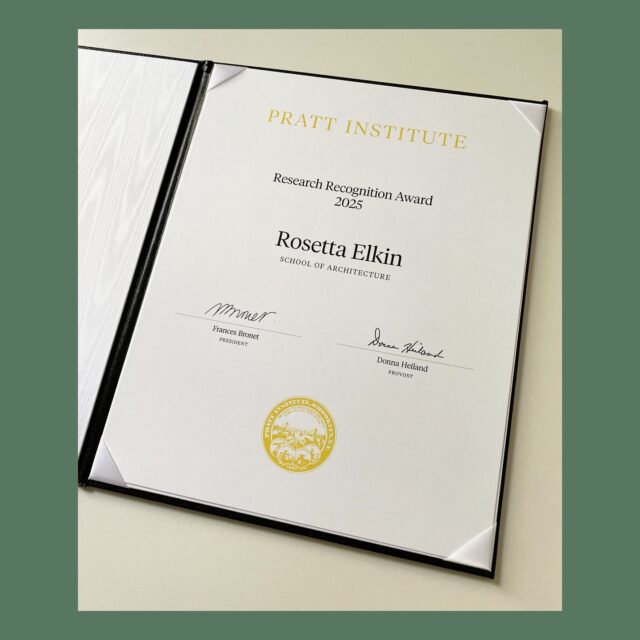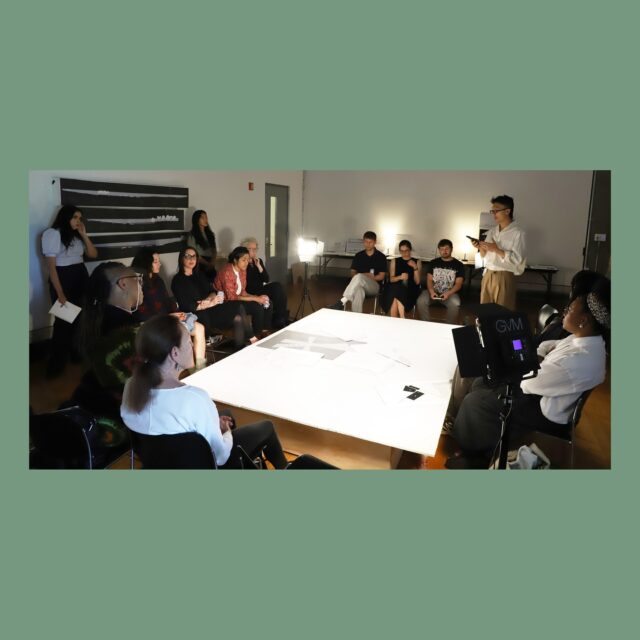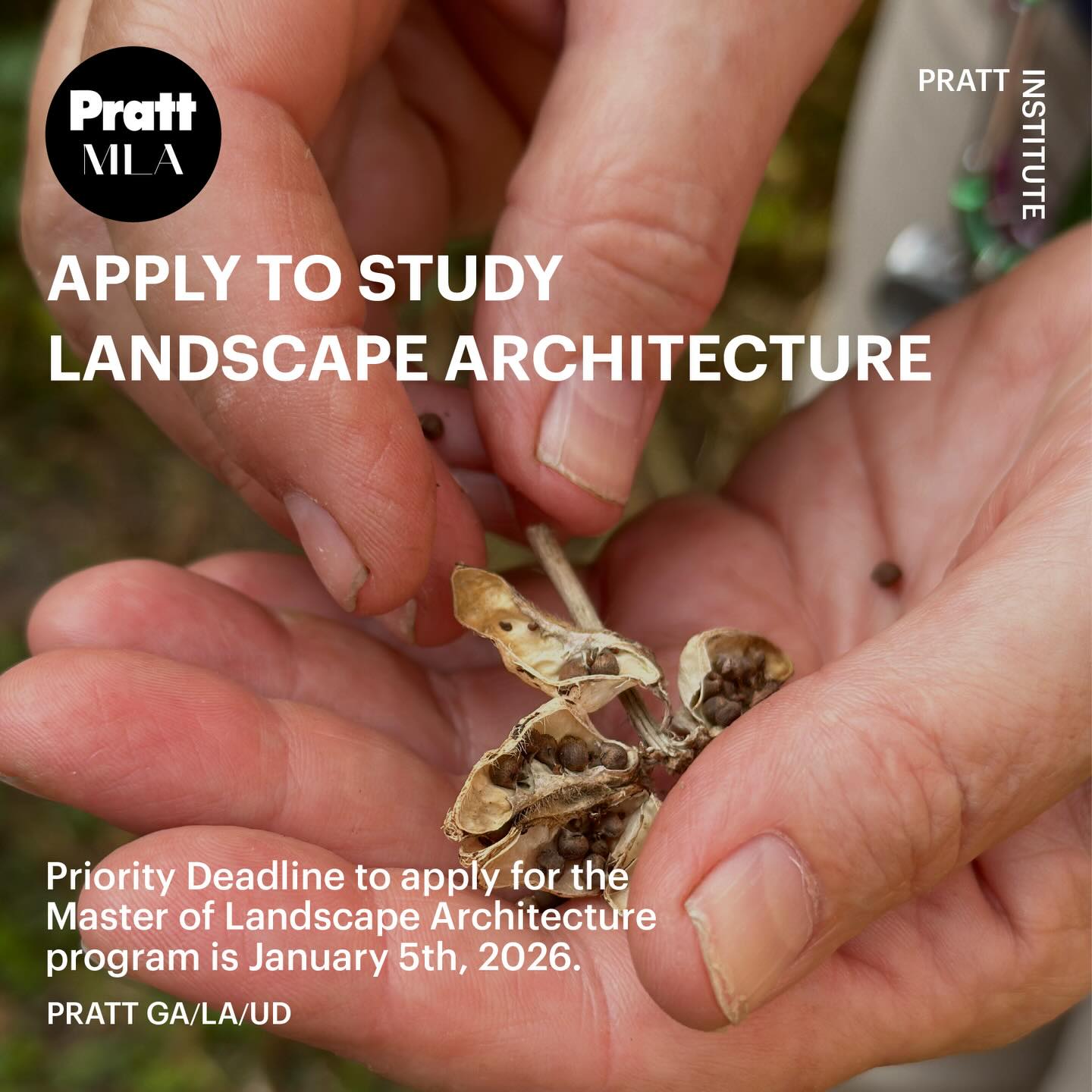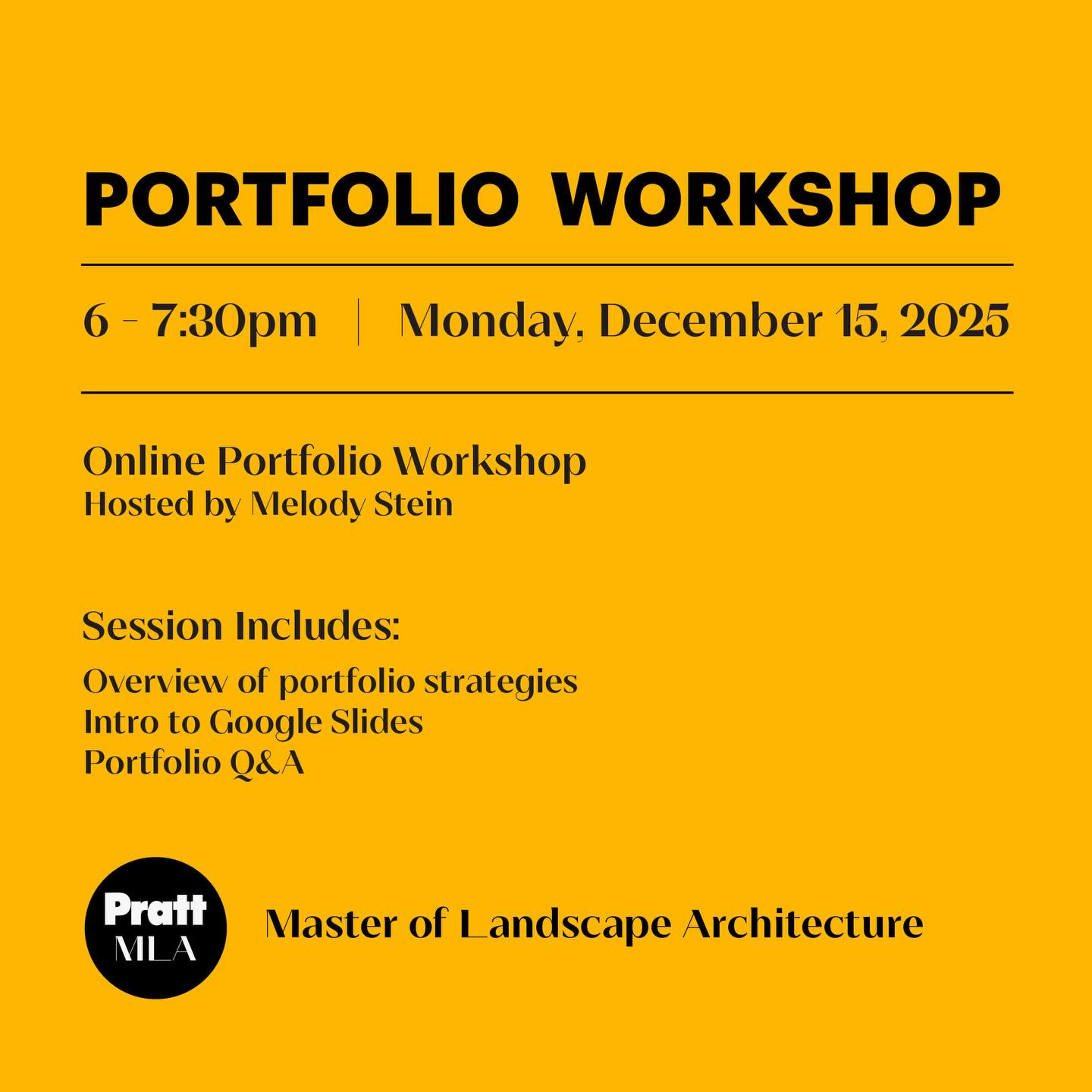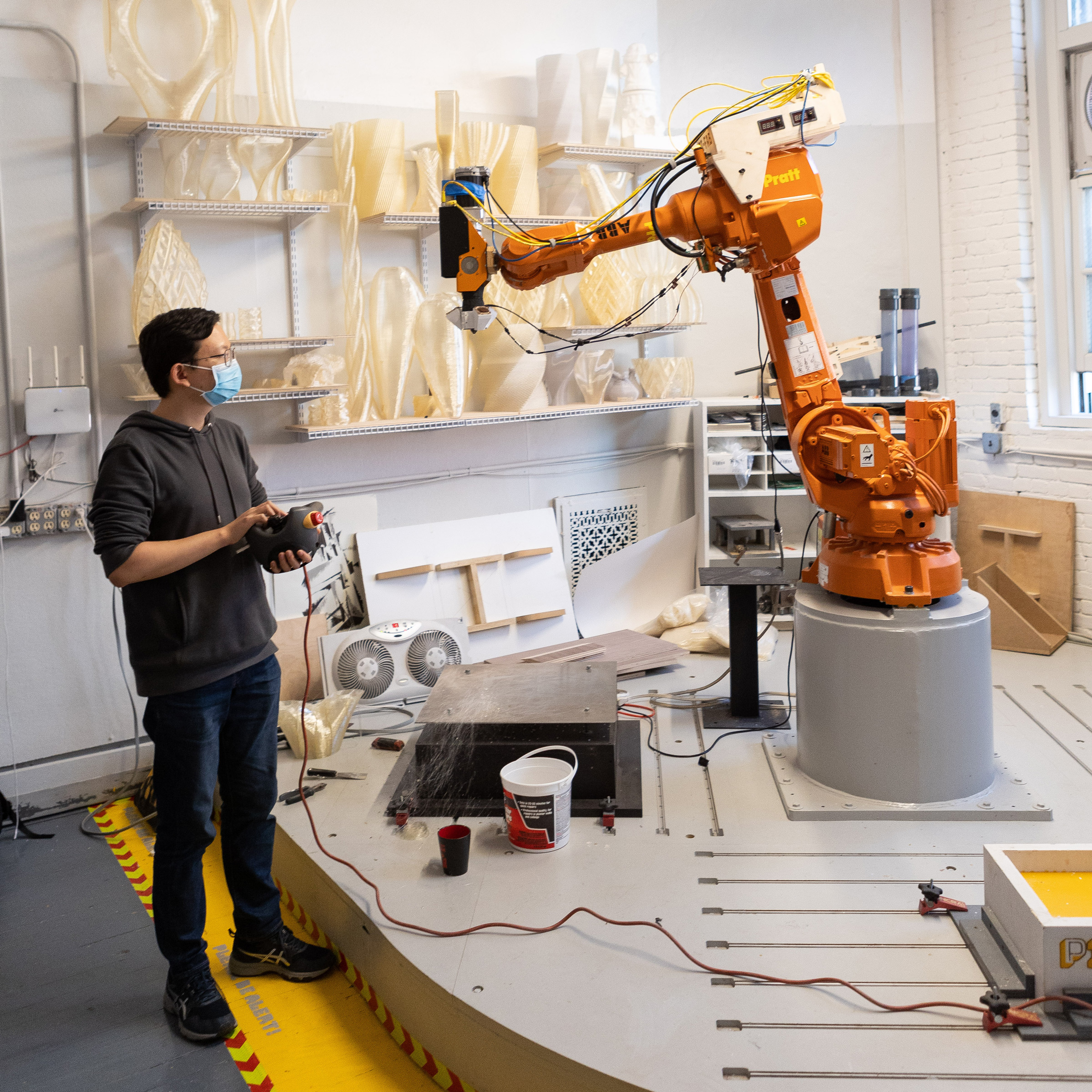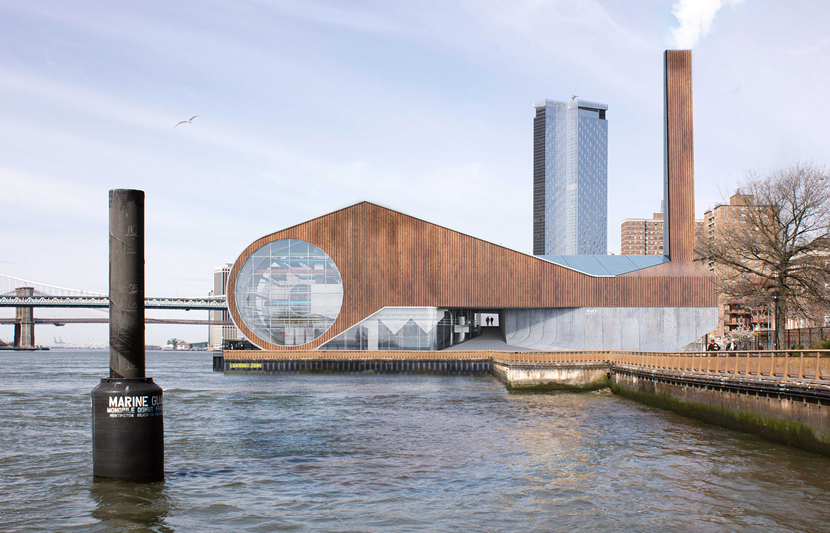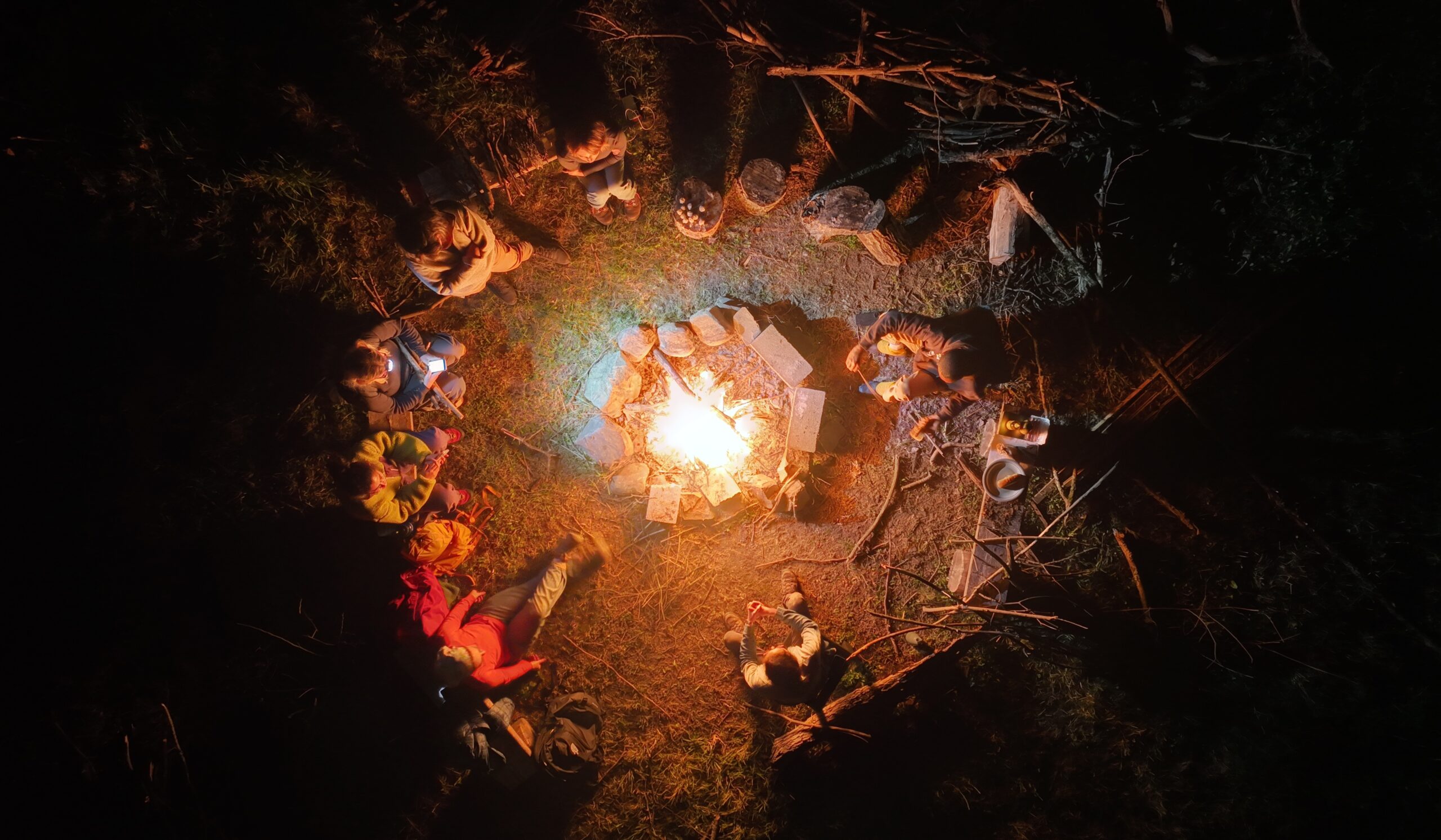
Landscape Architecture
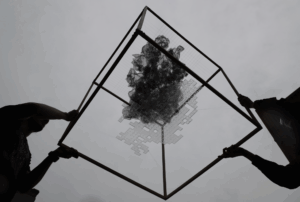
Students earning an MLA degree at Pratt are taught to embrace an inclusive approach to design that bridges culture and nature, ecology and policy, living and built environments. With so many challenges at hand, and underfoot, we prioritize collaborative and team-based learning, articulating changes between large scale systems, expansive historical precedents, evolutionary processes, and individual organisms. Landscape Architecture is a discipline, a profession, and a practice that informs the environment at every scale. We celebrate this legacy by imagining global education as a collaboration with the soils, plants and waters that sustain species.
Career Opportunities
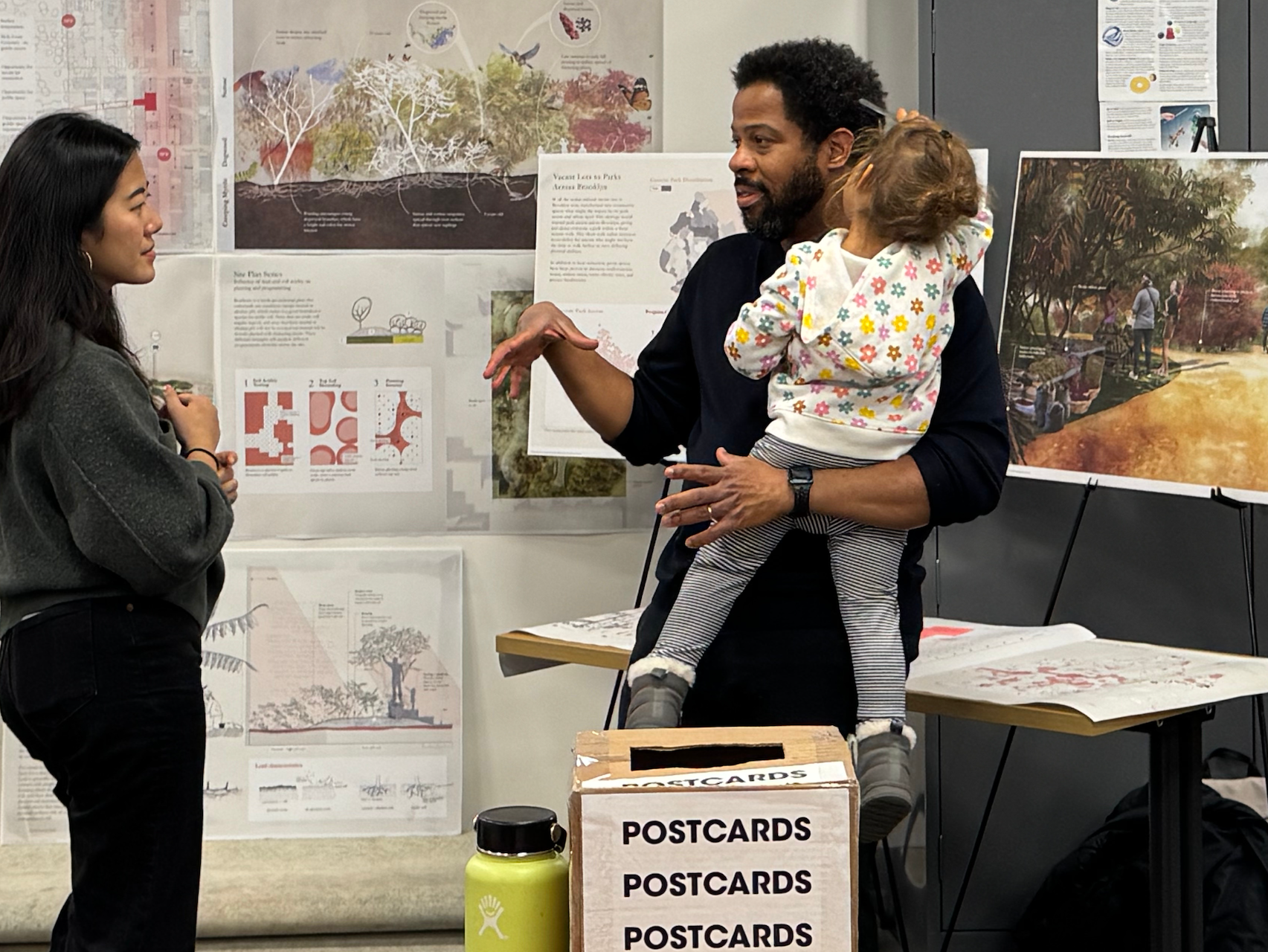
The program aims to enable graduates to enter the profession with a sophisticated portfolio of flexible skills, knowledge and understanding.
Graduates from the MLA program progress to work in design practice and landscape stewardship both nationally and internationally, as well as contributing to academia and aspects of governance of a wide spectrum of landscapes across a broad range of scales.
Faculty Highlight
As educators, our most important task is to determine how we can create equitable learning for all students, which includes diverse ways of knowing. Our program is supported by colleagues, students, and professional associations that work through civic engagement and respects the traditional and unceded homeland of the Lenape people. In a time of great uncertainty, we are certain that our relationship to the land requires our complete attention. See all GA/LA/UD faculty and administrators.
-
Elliott Maltby
Interim Academic Director, Landscape Architecture Program; Adjunct Associate Professor
-
Mariel Collard
Assistant Professor
-
Mark Heller
Assistant Professor
Success Stories
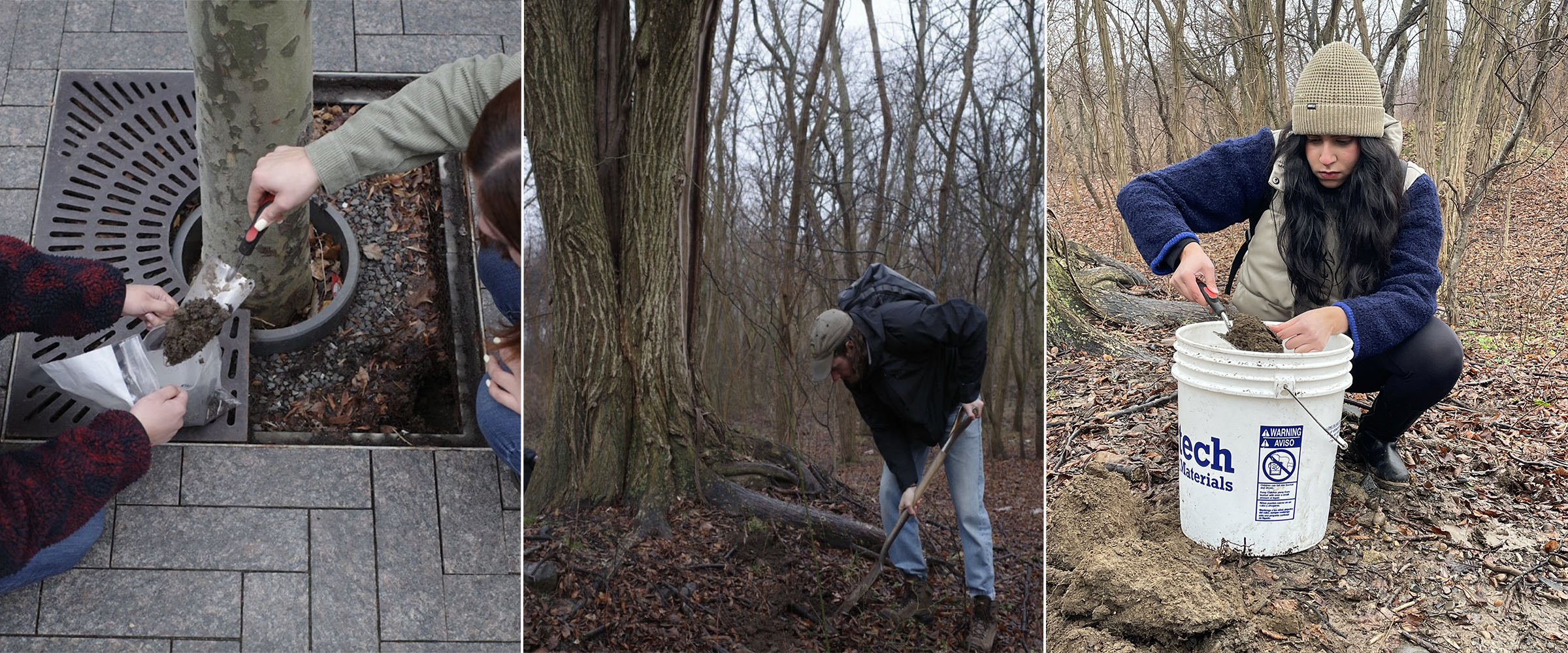
Moving Dirt, Shaping Worlds
Article
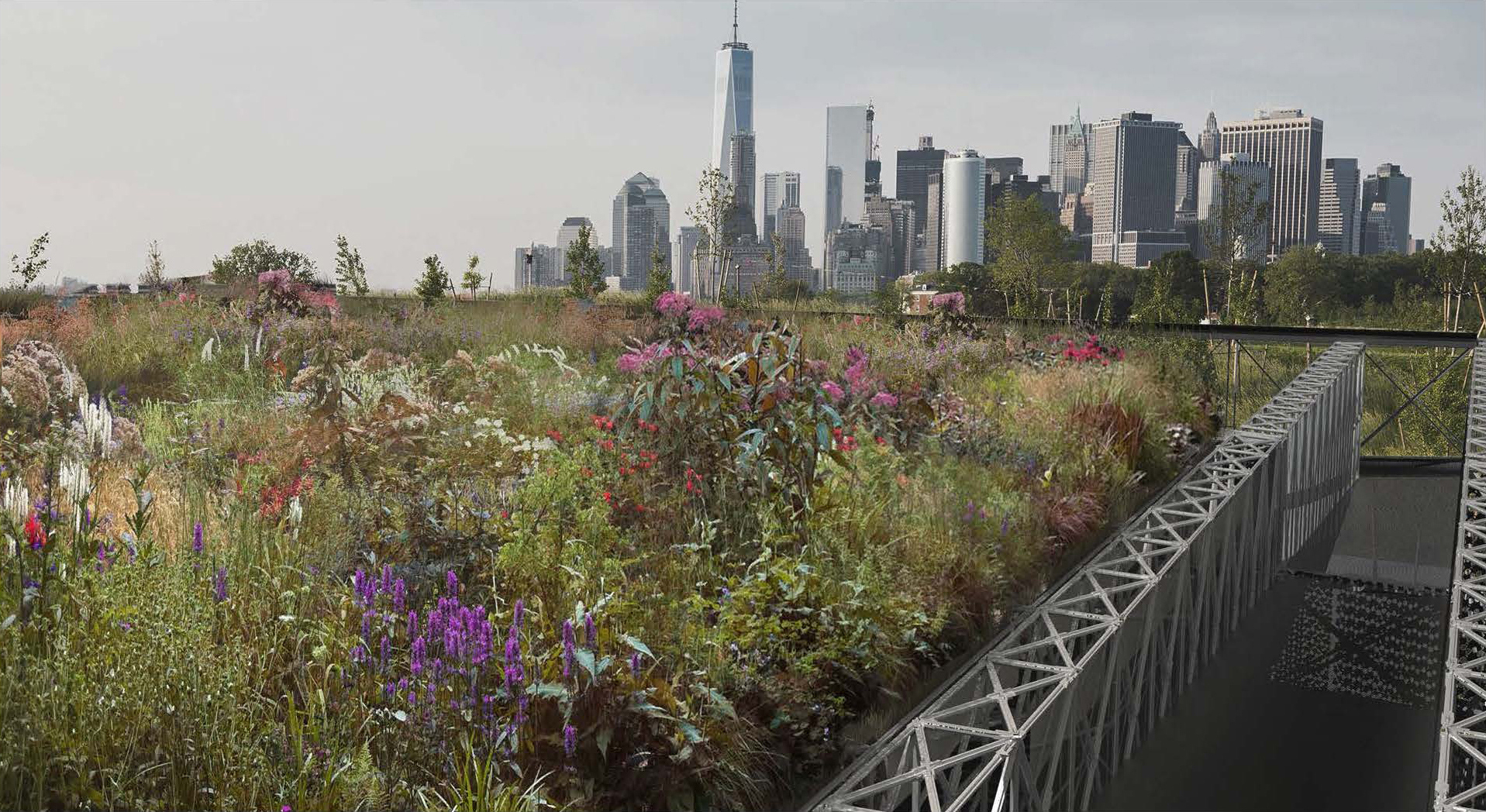
Ready for More?
| HERE’S HOW TO APPLY | Graduate Studies at Pratt | OUR CAMPUS & BEYOND |
|---|---|---|
| Join us at Pratt. Learn more about admissions requirements, plan your visit, talk to a counselor, and start your application. Take the next step. | Whether your goal is to advance your career, pivot to a new field, or explore your craft or groundbreaking research, our 33 graduate programs provide the rigor and support to achieve your vision. Explore our graduate programs in architecture, fine arts, design, information studies, and the liberal arts and sciences. Learn More. | You’ll find yourself at home at Pratt. Learn more about our residence halls, student organizations, athletics, gallery exhibitions, events, the amazing City of New York and our Brooklyn neighborhood communities. Check us out. |
